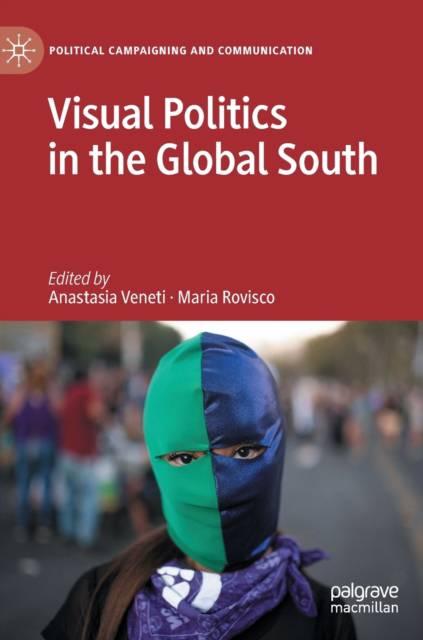
- Retrait gratuit dans votre magasin Club
- 7.000.000 titres dans notre catalogue
- Payer en toute sécurité
- Toujours un magasin près de chez vous
- Retrait gratuit dans votre magasin Club
- 7.000.0000 titres dans notre catalogue
- Payer en toute sécurité
- Toujours un magasin près de chez vous
Visual Politics in the Global South
147,95 €
+ 295 points
Description
The role of the visual in politics is gaining momentum in scholarly work concerned with the current social media landscape. It is widely acknowledged that the production, dissemination and consumption of visual products in the Global South is powerfully shaped by geo-politics and a power dynamics in which the Global North dominates the South (the cultural imperialism argument). However, scant attention has been paid to theoretical, methodological, and empirically grounded approaches to visual politics produced by scholars working in the Global South. Little is known about the ways in which scholarship in the Global South might challenge and resist western approaches to the study of the visual. Against this background, this project aims to examine visual politics in the Global South through theoretically driven, and empirically grounded case studies, which focus on the role of the visual in formal politics (e.g., political campaigns, the relation between state and citizens) and public and everyday politics (e.g., social movements, activism, grassroots politics, civil society initiatives). This volume examines visual politics in the Global South through theoretically driven, and empirically grounded case studies, which focus on the role of the visual in formal politics (e.g., political campaigns, the relation between state and citizens) and public and everyday politics. It will be of interest to both researchers and students interested in the study of visual politics from various disciplinary lens (media and communication, anthropology, politics, and sociology).
Spécifications
Parties prenantes
- Editeur:
Contenu
- Nombre de pages :
- 331
- Langue:
- Anglais
- Collection :
Caractéristiques
- EAN:
- 9783031227813
- Date de parution :
- 04-04-23
- Format:
- Livre relié
- Format numérique:
- Genaaid
- Dimensions :
- 148 mm x 210 mm
- Poids :
- 576 g

Les avis
Nous publions uniquement les avis qui respectent les conditions requises. Consultez nos conditions pour les avis.





